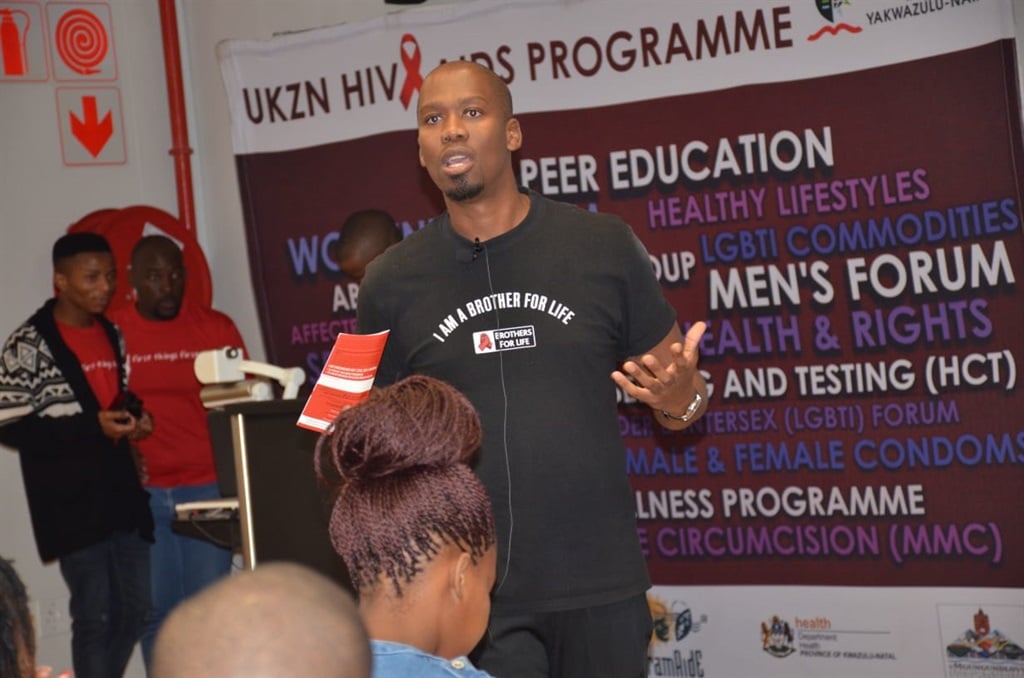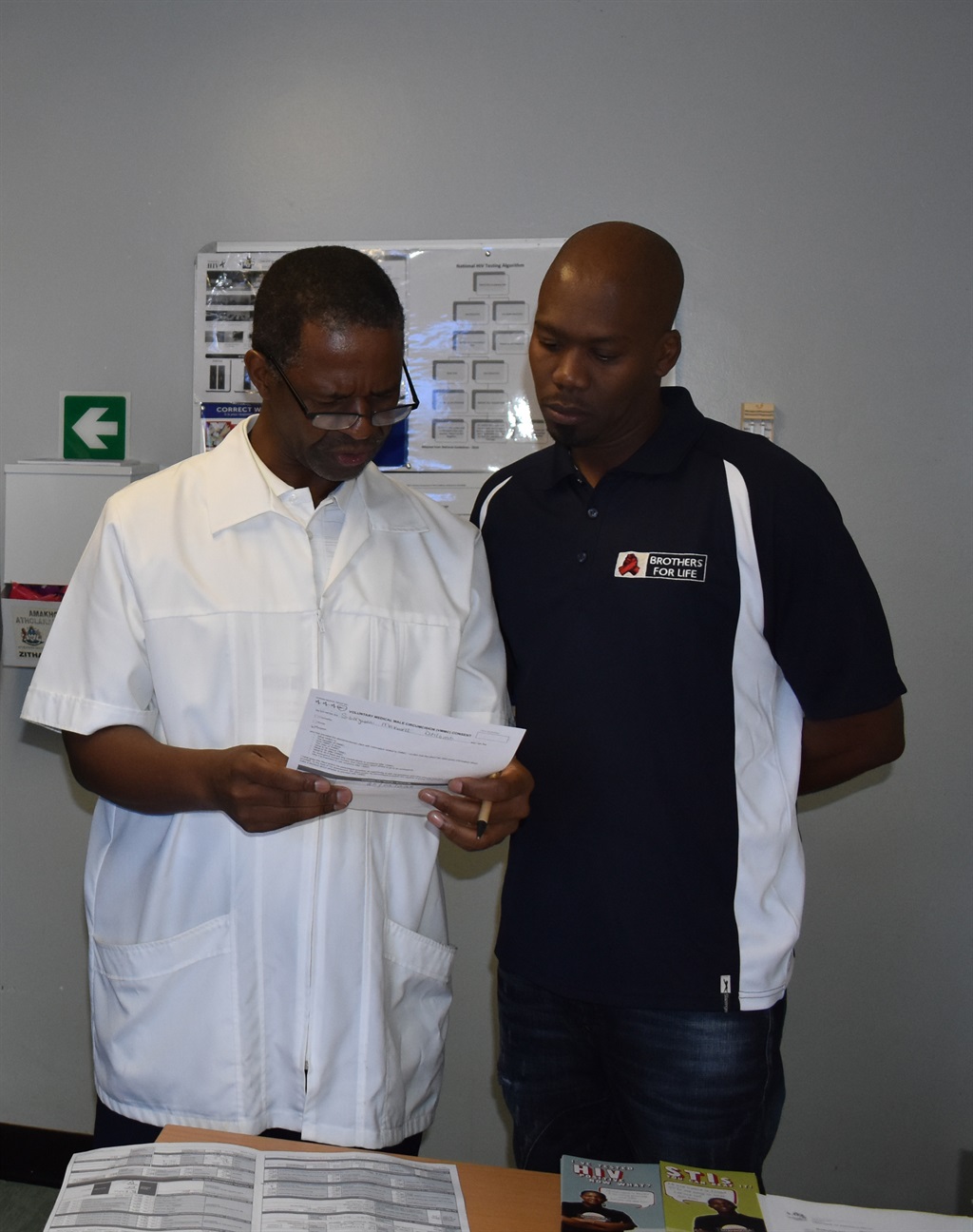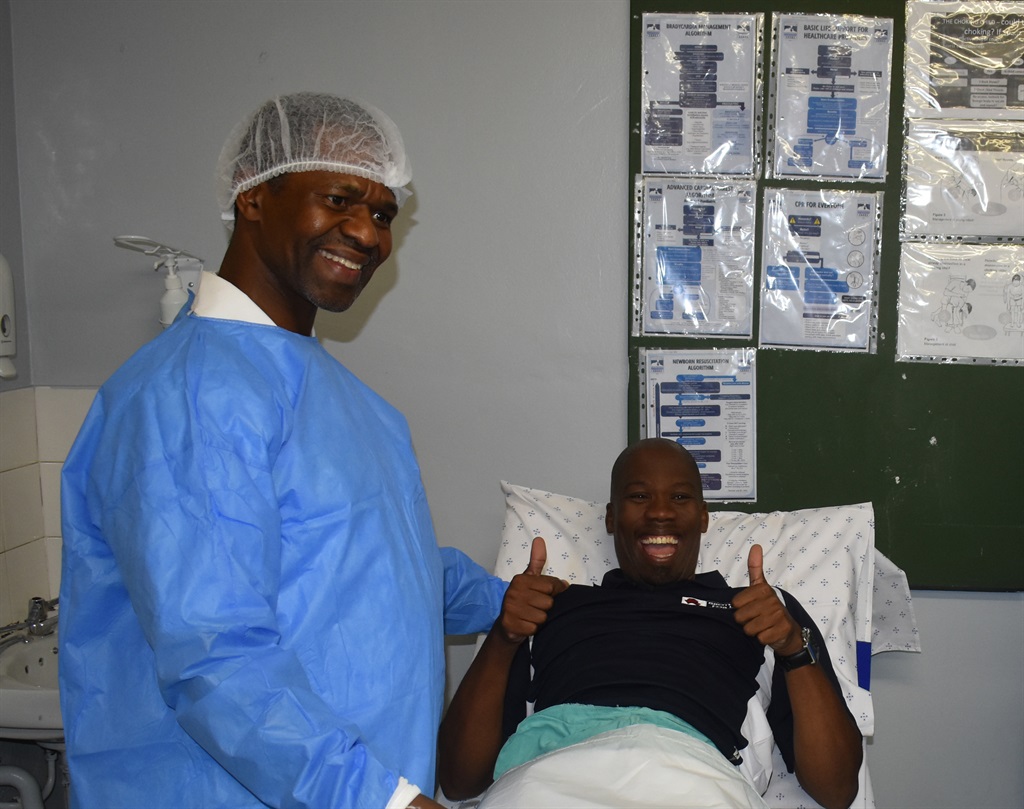
Actor Melusi Yeni was the millionth man to undergo voluntary male medical circumcision at the Sivananda Clinic in KwaZulu-Natal last week, and he couldn’t be more pleased.
Speaking to City Press over the phone on Friday morning before heading off for a radio interview, Yeni, who has had international fame for starring in a mini-series called Madiba alongside the likes of Laurence Fishburne, Orlando Jones and Terry Pheto, did not anticipate how much of power undergoing a circumcision would have.
“You know people don’t realise the amount of work that needs to be done for our youth, in order to help them escape social ills like drug and alcohol abuse, as well as trying to bring down the high levels of HIV infection rates in the country. This is why when the department of health approached me to be a part of this campaign, I was really happy to jump on board,” Yeni said.
The Millionth Man Campaign kicked off on May 25, when Yeni underwent his circumcision as part of a drive by the national health department and various stakeholders to reduce new HIV infections in the province. The KwaZulu-Natal department of health now has hopes of another million men being circumcised.
Growing up in the township of KwaMashu, Yeni believes that perhaps at this time of his life, he would like to be involved in community outreach programmes, in order to help alleviate the high levels of drug abuse which are tearing through the province.
“I was so shocked when I returned home last year, because there were two boys who were chosen for the under 15 soccer teams, but one of them ended up becoming a whoonga addict. I realised that I needed to be a good role model for the youth and men,” he said.
Whoonga, also known as nyaope, is a street drug which comprises of a few lethal ingredients including rat poison, anti-retroviral drugs and acid. It has swept through the streets of poor Durban and Johannesburg communities.
Yeni is part of the Brothers For Life programme, which advocates for voluntary medical male circumcision.
“Many older men, I would say over the age of 35, are hesitant to get ‘cut’,” said Yeni, who is 40.
“They still believe they need to either go the traditional route, like in the Xhosa culture the boys and men go to the mountains, but our Zulu men supposedly feel like they shouldn’t. So if people knew the benefits of going the medical route, it really is amazing because the risks of contracting infections are minimal,” he said.
Yeni described his procedure, which was performed by KwaZulu-Natal health MEC Dr Sibongiseni Dhlomo, as “hassle-free”.
“People were expecting me to come out of the procedure in a lot of pain and discomfort. I even drove myself afterwards to a radio interview and they were shocked that I had driven myself. A lot of people thought that I would have to taken the week off and remain in bed, but that’s not what happens. The operation is quick and the recovery time is actually very fast,” he said.
It is for this reason that Yeni also decided to get circumcised, because he felt that he couldn’t truly engage with the public unless he underwent the procedure himself.
“I can’t go around trying to make a difference unless I, myself, am an example to others. We see mostly younger boys getting circumcised. Older men worry that they will take longer to heal or that the pain will be too much. They also feel that they have to ‘go to the mountains’ because it is what makes them a ‘man’.”
The post-operation procedure helped to reaffirm his commitment to raising awareness around voluntary male medical circumcision.
“I know that the township of KwaMashu, where I grew up, has been reported negatively in the media in terms of the drug abuse and the violence. But people need to understand that so many great people have come out if too like [energy minister] Jeff Radebe and [actress] Leleti Khumalo. And for me it’s about going back to my roots and helping to uplift the community, so that we can help to eradicate the scourge of HIV infection rates once and for all,” Yeni said.
Yeni hopes to focus his attention on writing up scripts for dramas that deal specifically with social ills such as drug and alcohol abuse, while also engaging communities in and around KwaZulu-Natal.
What is Voluntary Medical Male Circumcision?
According to the World Health Organisation, voluntary male medical circumcision is the “surgical removal of the foreskin – the retractable fold of tissue that covers the head of the penis. The inner aspect of the foreskin is highly susceptible to HIV infections.”
The organisation recommended that trained health professionals perform the procedure on infants, adolescents and adults.
What role does it play in decreasing the risk of HIV infection rates?
In 2007, the World Health Organisation and UNAids recommended the effectiveness of voluntary male medical circumcision as an “additional HIV prevention strategy based on strong and consistent scientific evidence.”
This included trials which were conducted in Kenya, Uganda and South Africa, where the risk of sexual transmission of HIV from women to men decreased by 60%.
A web tool built by City Press in partnership with Code for Africa and Open Data Durban enables parents and initiates to check whether the traditional surgeons they have chosen are registered with the provincial department of health, or find someone who is. It also enables users to report unregistered surgeons and illegal initiation schools, as well as initiates who are in trouble.
Access the app here: http://app.ezolwaluko.org.za/en
| |||||||||||||
| |||||||||||||




 Publications
Publications
 Partners
Partners










